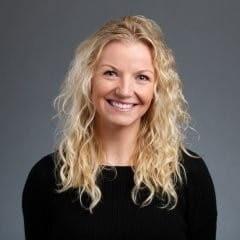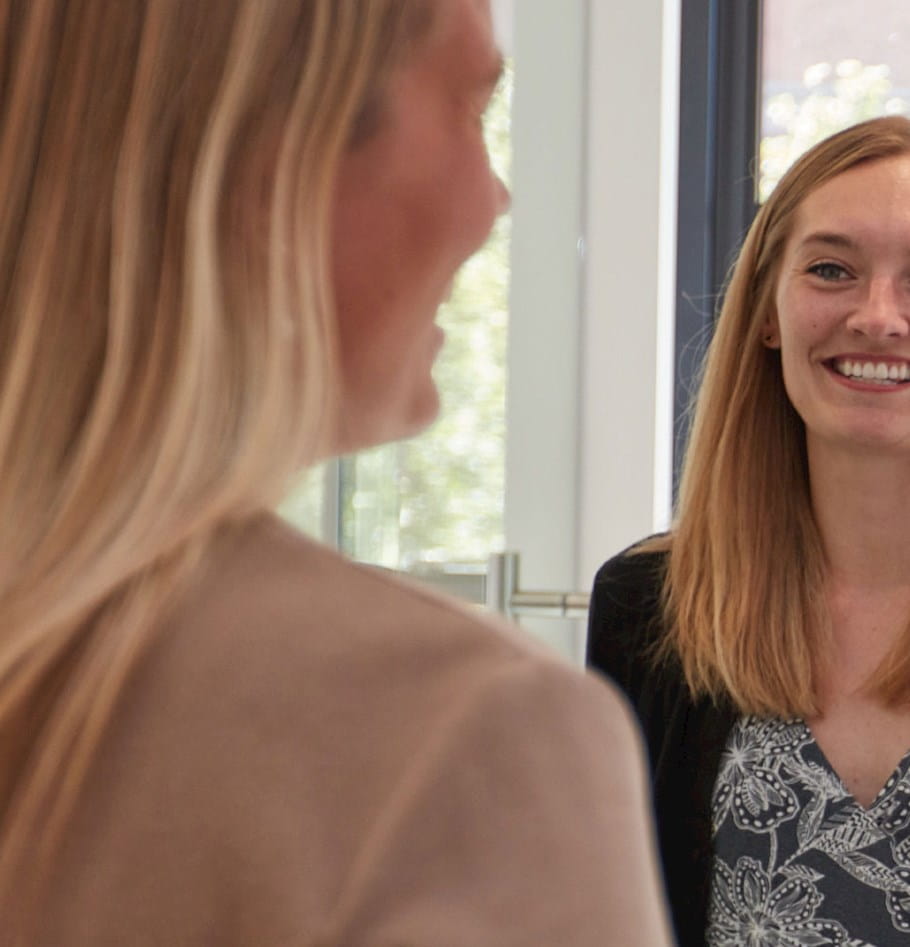Women in consulting: A Q&A with Jayna Curran on leading by example
 This feature is part of a series highlighting the contributions and career paths of women at West Monroe. Especially in technology consulting, traditionally a male-dominated industry, it can be difficult for women to find role models and paths that work for them. The goal of this blog series is to communicate the unique paths and successes of women at West Monroe. We believe that sharing these stories will make women more aware of the opportunity and flexibility available to them in consulting, in technology, and at West Monroe.
This feature is part of a series highlighting the contributions and career paths of women at West Monroe. Especially in technology consulting, traditionally a male-dominated industry, it can be difficult for women to find role models and paths that work for them. The goal of this blog series is to communicate the unique paths and successes of women at West Monroe. We believe that sharing these stories will make women more aware of the opportunity and flexibility available to them in consulting, in technology, and at West Monroe.
How have you navigated work-life balance since becoming a parent?
For me, work-life balance consists of a series of levers made up of things that are important to me at that point in time, and those levers and their priority have changed since becoming a parent. When I agree to do something, I weigh it more against the other areas of my life than I did previously, particularly when it comes to spending time away from my family. Although the opportunities I’m presented with haven’t changed, the challenge is figuring out what I can do while retaining my responsibilities to myself and my family. I always want to say yes, but I’ve had to step back and prioritize the opportunities that are most important to me. Time management is always something to consider as a consultant, and it’s become even more important after becoming a parent.
What strategies did you employ to successfully transition back to work after maternity leave?
I was fortunate to have supportive teams, managers, and leadership support, so we started talking about my transition back even before I went on maternity leave. They wanted to make sure that I didn’t jump in and overcommit, and when I was ready, I could take on more responsibilities as I got comfortable navigating this new “normal” of my life. I stayed local at first, which allowed me to establish my routine and made it easier to start traveling to clients again. Open communication with your team and managers is a must. Setting expectations and boundaries, as well as sticking to them, is also important. I’m a Principal at West Monroe, which means I bring software subject matter expertise and guidance to our clients based on project experience. I am staffed on multiple projects at once and, as such, typically need to be at multiple places at once. I am in constant communication with my project teams providing transparency in where I will be during a given week or even day – whether it is in Chicago or at a client site, it allows me to schedule ahead of time and set the appropriate expectations at work and at home. The nature of the principal role is primarily that of an upfront contributor, progressing to part-time as the project continues, which is conducive to more openness in travel. I have been with the firm for six years and I am very appreciative of the flexibility West Monroe gives to its employees; it certainly has allowed me to both continue my work as a consultant and spend time with my family.
What has been your most challenging project? What made it difficult, and how did you adapt to it?
My most challenging project was one of my first software implementation projects, where we had a demanding client and an evolving project methodology. It provided an opportunity to not only learn the technology, but also how to navigate a complicated project and client, which are skills that you can only learn through experience. Although it was a challenging project, it was one I learned the most from all around, such as how to set expectations with the client, manage scope, have difficult conversations, and challenge the client as it relates to best practices. I also learned the importance of controlling my emotions and presenting a calm face to the team. The project also enabled me to develop more principal-level leadership skills; it’s easy to lead when the client and project are manageable, but I found there is a next level of personal growth you achieve when dealing with tough projects.
How has your leadership role developed?
My leadership style has evolved over the years as I have had the opportunity to work with different managers and leaders and incorporate what I responded to into my own style. I was in industry for several years before joining WMP, which gave me another prospective as it relates to managing. Since joining West Monroe six years ago, I have more faith in myself that I know what I’m doing, which generates the confidence to lead others. I’ve made mistakes and gone through hard projects, and those experiences have strengthened my ability to lead.
You are a mentor for many women, especially in your practice. How did that come to be, and what characteristics do you find most helpful as a mentor?
Many of my mentor-mentee relationships came to be organically while being on project teams with other women; I found that they would come to me for advice outside of the career sphere. Consulting is a male dominated industry, particularly as you go higher up the leadership ranks, so it is important for women to support each other as best we can. You deserve a seat at the table, and it’s important not to be afraid to speak your opinions or ask to get involved in what interests you. Like many of my mentors, I encourage my mentees to identify long term goals, both personally and professionally, and then be transparent about them to take ownership of their future. I prioritize listening and communication in these relationships to understand the individual and their needs. I try to lead by example and to have empathy for others, which fosters awareness of what they might be going through at that stage in life.

